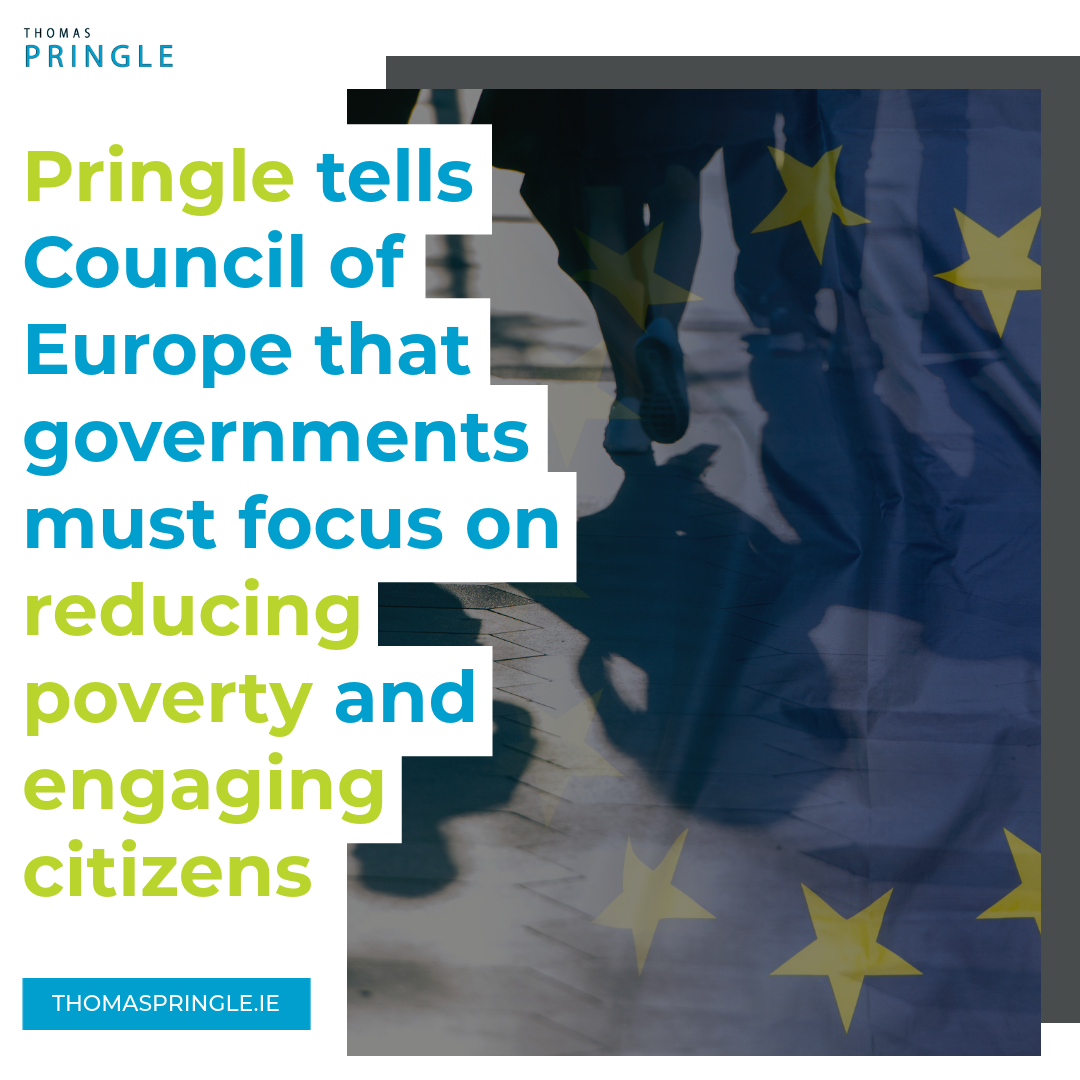- Pringle: We need a policy that recognises the importance of inshore fishing
- Pringle: Disabled people and carers face crisis of State neglect
- Pringle: Failed FF/FG housing policies forcing people to put their lives on hold
- Pringle welcomes Donegal council motion on Occupied Territories Bill: ‘We cannot stand by in the face of genocide’
Pringle tells Council of Europe that governments must focus on reducing poverty and engaging citizens
- Updated: 30th January 2024

Independent TD for Donegal, Thomas Pringle, told the Council of Europe that governments must focus on reducing poverty and engaging citizens to protect their people and build trust.
Addressing the Assembly winter plenary session of the Council of Europe yesterday (Wednesday), Deputy Pringle said: “The OECD has outlined in their report that general government spending is on the increase around the organisation. It is also concerned that the Covid-19 pandemic, global conflicts and the climate crisis and rising inequalities have reversed global progress on poverty reduction.
“It is clear that all of those factors are influenced by human activity, and it is human activity that can solve those conflicts as well.
“In 2020, 700 million people were living in extreme poverty and nearly half the world were living with less than $6.85 per day. So it is organisations like the OECD that can contribute to resolving this issue as well. At times of crisis, country deficits should grow, I believe. If we are to leave no one behind, as the report says, then at times of difficulty they should grow deficits and that is the only way to protect citizens. Because ultimately the role of the OECD and also of the Council of Europe should be the protection of those citizens,” he said.
The deputy is in Strasbourg for the Assembly winter plenary session of the Council, where he took part in the debate on Globalisation in times of crisis and war: The role of the OECD since the Russian Federation’s aggression against Ukraine. Deputy Pringle is a member of the Unified European Left on the Council.
Deputy Pringle said: “The Assembly also noted that in 2021, in a survey about trust, 40 per cent of people did not trust governments. Less than one-third of people think they can participate in government decision-making. This is a real crisis for governments in the OECD and indeed for governments right across the world. I believe that when governments ignore and isolate so many people, it will come home to roost in the future, and I believe that we are seeing that right across Europe now at the moment, and indeed we will see it in Ireland in the coming year as well.
“As all politics seems to move to the centre, the isolation will become more and more problematic. And also, governments are not talking to people, governments are talking at them, and they’re not including people in the decision-makings. That is a real problem and it’s something that we need to address. I believe that the OECD and the Council of Europe should be working on that.
“The Secretary General did say that more cooperation is what is needed. But more cooperation in the right way is what is needed, more cooperation involving our citizens in the decision-making process and ensuring that we can bring all our citizens with us,” he said. That will grow public trust in government, he said.
Deputy Pringle said: “That is what we should be aiming for rather than economic development solely and in its own right.”



